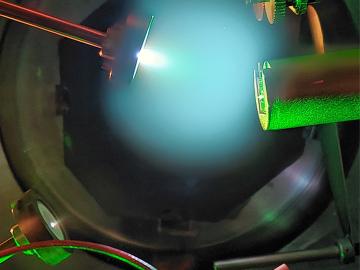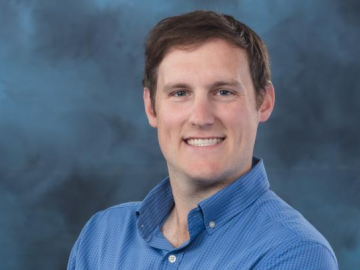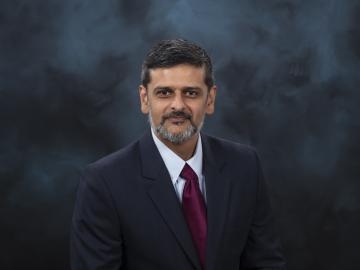
Filter News
Area of Research
- Advanced Manufacturing (2)
- Biological Systems (1)
- Biology and Environment (20)
- Building Technologies (1)
- Computational Biology (1)
- Computational Engineering (2)
- Computer Science (12)
- Electricity and Smart Grid (1)
- Energy Science (23)
- Functional Materials for Energy (1)
- Fusion and Fission (9)
- Fusion Energy (7)
- Isotopes (2)
- Materials (28)
- Materials for Computing (5)
- Mathematics (1)
- National Security (7)
- Neutron Science (34)
- Nuclear Science and Technology (6)
- Quantum information Science (4)
- Supercomputing (28)
News Type
News Topics
- (-) Artificial Intelligence (33)
- (-) Bioenergy (26)
- (-) Biomedical (18)
- (-) Computer Science (70)
- (-) Frontier (10)
- (-) Fusion (19)
- (-) Neutron Science (42)
- (-) Physics (11)
- (-) Security (4)
- 3-D Printing/Advanced Manufacturing (57)
- Advanced Reactors (18)
- Big Data (26)
- Biology (31)
- Biotechnology (6)
- Buildings (31)
- Chemical Sciences (31)
- Clean Water (14)
- Composites (16)
- Coronavirus (15)
- Critical Materials (13)
- Cybersecurity (9)
- Emergency (2)
- Energy Storage (50)
- Environment (67)
- Exascale Computing (11)
- Fossil Energy (1)
- Grid (28)
- High-Performance Computing (33)
- Hydropower (6)
- Irradiation (3)
- Isotopes (15)
- ITER (5)
- Machine Learning (19)
- Materials (70)
- Materials Science (54)
- Mathematics (3)
- Mercury (3)
- Microscopy (21)
- Molten Salt (6)
- Nanotechnology (25)
- National Security (13)
- Nuclear Energy (36)
- Partnerships (11)
- Polymers (15)
- Quantum Computing (9)
- Quantum Science (17)
- Simulation (16)
- Software (1)
- Space Exploration (11)
- Statistics (1)
- Summit (11)
- Transportation (52)
Media Contacts

A team of researchers used the Frontier supercomputer and a new methodology for conducting a genome-wide association study to earn a finalist nomination for the Association for Computing Machinery’s 2024 Gordon Bell Prize for outstanding

Kathryn McCarthy, director of the US ITER Project at the Department of Energy’s Oak Ridge National Laboratory, has been awarded the 2024 E. Gail de Planque Medal by the American Nuclear Society.

A multi-institutional team of researchers led by the King Abdullah University of Science and Technology, or KAUST, Saudi Arabia, has been nominated for the Association for Computing Machinery’s 2024 Gordon Bell Prize for Climate Modelling.

Researchers led by the University of Melbourne, Australia, have been nominated for the Association for Computing Machinery’s 2024 Gordon Bell Prize in supercomputing for conducting a quantum molecular dynamics simulation 1,000 times greater in size and speed than any previous simulation of its kind.

In a game-changing study, ORNL scientists developed a deep learning model — a type of artificial intelligence that mimics human brain function — to analyze high-speed videos of plasma plumes during a process called pulsed laser deposition.

ORNL’s Matthew Loyd will receive a Department of Energy Office of Science Early Career Research award.

A research scientist with the Department of Energy’s Oak Ridge National Laboratory, Ayana Ghosh was named the 2024 Early Discovery Award winner by the American Ceramic Society. The award recognizes an early career member of the organization who has contributed to basic science in the field of glass and ceramics.

The award was given in “recognition of his lifelong leadership in fusion technology for plasma fueling systems in magnetically confined fusion systems.”

Oak Ridge National Laboratory scientists have developed a method leveraging artificial intelligence to accelerate the identification of environmentally friendly solvents for industrial carbon capture, biomass processing, rechargeable batteries and other applications.

Anuj J. Kapadia, who leads the Advanced Computing in Health Sciences Section at the Department of Energy’s Oak Ridge National Laboratory, was named a 2024 Fellow by the American Association of Physicists in Medicine.


